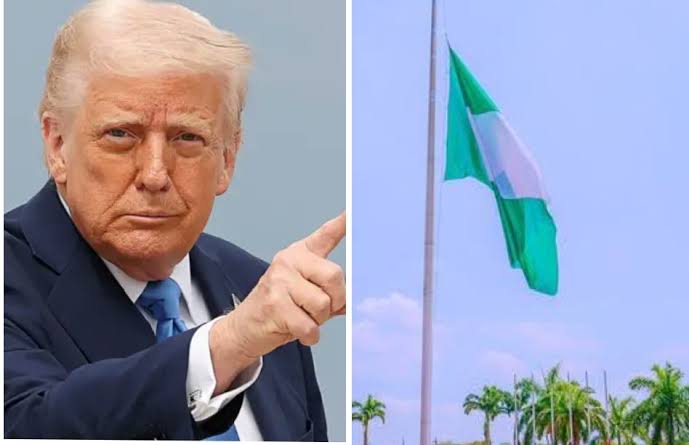
U.S. President Donald Trump has announced that Nigerian exports to the United States will now face a 14% tariff.
Speaking at a ‘Make America Wealthy Again’ event in the Rose Garden on Wednesday, Trump framed the move as part of his broader strategy to correct trade imbalances and counter perceived unfair trade practices.
The tariff marks a major shift in U.S.-Nigeria trade relations, with Washington citing an ongoing imbalance. The Trump administration argues that Nigeria imposes a 27% tariff on U.S. exports, a disparity they claim harms American businesses and consumers.
By introducing this new tariff, the U.S. aims to counter what it sees as an unfair trade arrangement. Trump described the measure as crucial to protecting American industries and ensuring global trade operates on what he calls “fair” terms.
Declaring a new era of “fair trade,” Trump vowed to “supercharge America’s industrial base” and push foreign markets to open up to U.S. goods.
“This is one of the most important days in American history,” Trump said. “We will supercharge our domestic industrial base. We will pry open foreign markets and break down foreign trade barriers, and ultimately, more production at home will mean stronger competition and lower prices for consumers.
“This will be, indeed, the golden age of Americans coming back. We’re going to come back very strongly.”
Alongside the 14% tariff on Nigerian exports, President Donald Trump has announced a broader trade policy imposing a baseline 10% tariff on all U.S. imports.
Effective immediately, the new tariffs impact over 50 countries, including key trade partners such as China, the European Union, India, and Japan, as well as developing economies across Asia, Africa, and Latin America.
This policy marks a significant shift in global trade dynamics, unsettling markets and raising concerns about a potential global trade war.
Beyond Nigeria, several African nations face steep tariffs under the new framework: Algeria (30%), Lesotho (50%), Mauritius (40%), Kenya (10%), Namibia (21%), Ethiopia (10%), and Ghana (10%). South Africa has been hit with a reciprocal 30% tariff.








